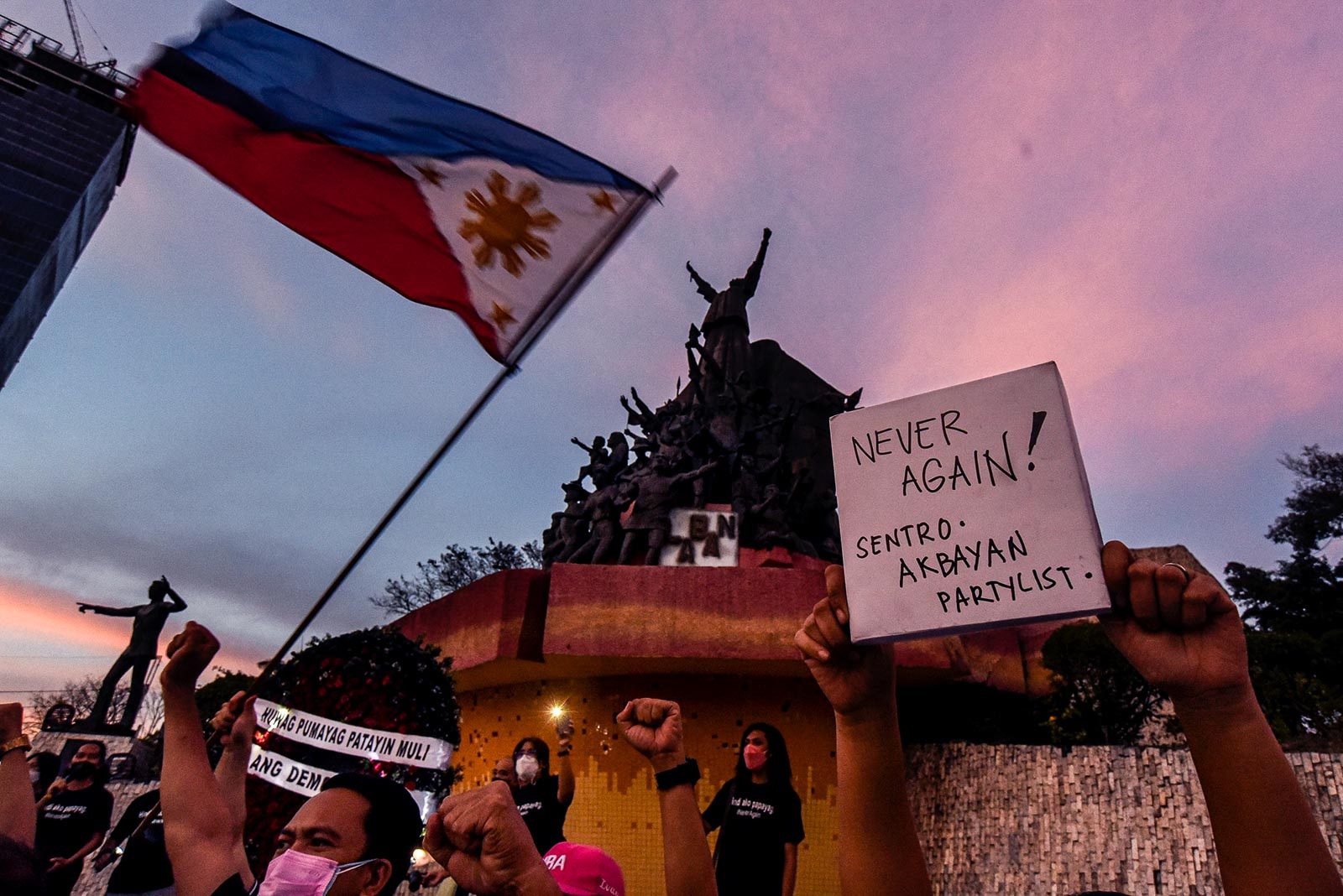SUMMARY
This is AI generated summarization, which may have errors. For context, always refer to the full article.

MANILA, Philippines – Citing “holiday economics,” President Ferdinand Marcos Jr. declared Friday, February 24, a special non-working day to commemorate the anniversary of a revolution that booted his father and namesake from Malacañang after decades in power.
Proclamation No. 167, signed by Executive Secretary Lucas Bersamin, says “the celebration of EDSA People Power Revolution Anniversary may be moved from 25 February 2023 (Saturday) to 24 February 2023 (Friday), provided the historical significance of the EDSA People Power Revolution Anniversary is maintained.”
The proclamation was signed by noon on Thursday, February 23, according to sources, but released to the media a quarter before 7 pm.
The People Power Revolution is typically celebrated on February 25, or the day Marcos was finally ousted from power, and Corazon Aquino was sworn in as new president. The dictator and his family, including Marcos Jr., would finally leave Malacañang for exile in the US in the wee hours of February 26, 1986.
Marcos had earlier declared February 25 itself a special non-working holiday.
In a post on the Official Gazette’s official Facebook page, the Palace said February 25 was a regular working day, while February 24 was now the non-working day because of the latest proclamation.
The proclamation, according to the Official Gazette, moves the non-working day “without diminishing the latter’s significance,” referring to the revolution.
“Holiday economics” was a term popularized during the term of former president Gloria Macapagal-Arroyo, a close ally of Marcos’. Holidays – or special non-working days – are “moved” to the closest Monday, resulting in a long weekend.
While the People Power Revolution Anniversary is not codified as a holiday in the Philippines, it is almost always declared a special non-working day by every president in the post-EDSA era.
Arroyo, again leaning on “holiday economics,” declared February 22, 2010, a holiday but only in schools. In 2009, February 23 was also a special holiday to commemorate the People Power Revolution, but only in schools.
Marcos Jr.’ ascent to power came 36 years after the EDSA Revolution. In a 2022 election marred by disinformation, Marcos emerged the first majority-elected president since his father’s ouster.
Malacañang has not said where Marcos intends to spend his first People Power Anniversary as President, despite queries from the media. – Rappler.com
Add a comment
How does this make you feel?
![[In This Economy] Marcos’ POGO ban is popular, but will it work?](https://www.rappler.com/tachyon/2024/07/thought-leaders-marcos-pogo-ban.jpg?resize=257%2C257&crop=255px%2C0px%2C720px%2C720px)
![[Rappler Investigates] POGOs no-go as Typhoon Carina exits](https://www.rappler.com/tachyon/2024/07/newsletter-graphics-carina-pogo.jpg?resize=257%2C257&crop=424px%2C0px%2C1080px%2C1080px)





![[Just Saying] SONA 2024: Some disturbing points](https://www.rappler.com/tachyon/2024/07/TL-marcos-sona-points-july-23-2024.jpg?resize=257%2C257&crop=335px%2C0px%2C720px%2C720px)





There are no comments yet. Add your comment to start the conversation.